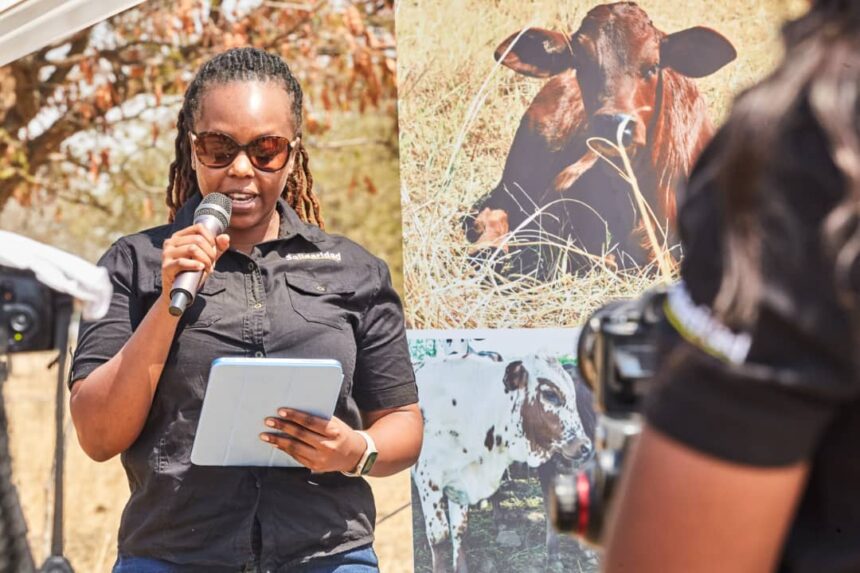As climate change intensifies, smallholder farmers in Southern Zambia are facing prolonged droughts that threaten their livelihoods. Solidaridad, in partnership with Planboo and Kvuno, is working to strengthen climate resilience through sustainable farming practices, offering farmers new economic opportunities while contributing to global carbon reduction goals.
With agriculture in Zambia largely dependent on rain-fed farming, the effects of climate change—rising temperatures, erratic rainfall, and soil degradation—are severely impacting smallholder farmers. To combat these challenges, Solidaridad is implementing climate-smart solutions that not only improve agricultural productivity but also generate new income streams for farmers.
Biochar Innovation Boosts Yields & Unlocks Carbon Credit Markets
Through the RECLAIM Sustainability! (RS!) Cotton project and the Pathways to Prosperity (P2P) Cotton Farmers Initiative, Solidaridad is pioneering the use of biochar—a soil amendment made from cotton stalks that improves moisture retention, enhances soil fertility, and helps crops withstand drought conditions. So far, over 2,000 farmers have adopted biochar, increasing cotton yields from 350 kg to 800 kg per hectare.
Beyond productivity gains, farmers are also gaining access to carbon credit markets, opening up a new revenue stream. In the 2024-2025 farming season, 450 farmers will earn income from carbon credits, providing financial security in the face of climate uncertainties.
“Biochar is proving to be a transformative solution for smallholder farmers. Not only does it improve soil structure and increase yields, but it also presents an economic opportunity through carbon credits. Farmers can now actively contribute to climate change mitigation while benefiting financially, which is a significant step toward long-term resilience,” said Pamidzai Bota, Solidaridad Regional Programme Manager, RECLAIM Sustainability! Cotton and Textile.
Sustainable Livestock Management Restores Land & Improves Livelihoods
Beyond cotton farming, Solidaridad is promoting sustainable livestock farming through the P2P Livestock Project, which supports farmers across three chiefdoms in Southern Zambia. The initiative introduces rotational grazing, preventing overgrazing and allowing pastures to regenerate, leading to healthier livestock, improved soil fertility, and reduced carbon emissions.
“Smallholder farmers are not just adapting to climate change; they are at the forefront of pioneering innovative solutions. By implementing sustainable practices like rotational grazing and biochar use, these farmers are ensuring not only food security but also long-term environmental sustainability. Their role in climate resilience cannot be overstated,” said Sheila Garakara, Solidaridad Country Manager (Zambia).
In conclusion, it is important to think about the future of climate-smart agriculture in Zambia, and across Southern Africa. From cotton to livestock farming, Solidaridad is demonstrating that smallholder farmers can lead climate action with the right support. By scaling biochar adoption, expanding carbon credit access, and promoting regenerative farming, these initiatives are paving the way for a more sustainable and resilient agricultural future in Zambia and beyond.






